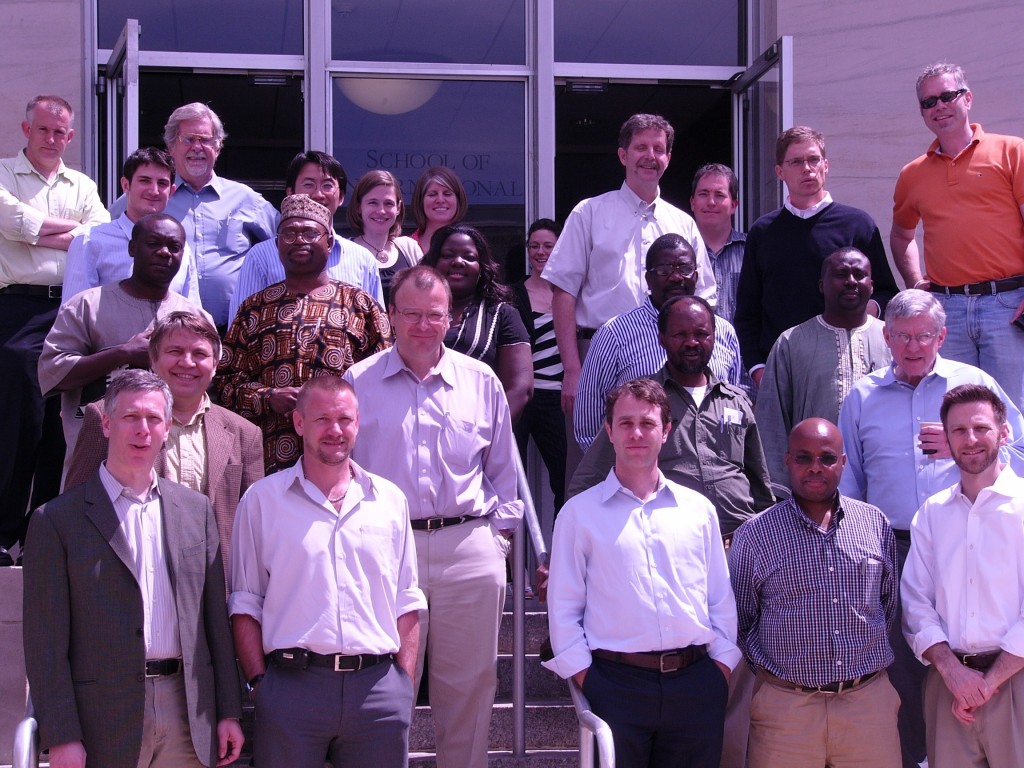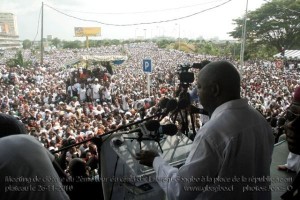Are power sharing agreements a bad solution to flawed African elections? In the January 2011 issue of Governance, I point out that most of what we know about successful power sharing comes from either post-conflict countries or from cases which actually lack important features of power sharing models. However, many of Africa’s recent power sharing agreements were brokered as solutions to bad elections.
Just days after the article appeared, the Ivory Coast began what is now a familiar stalemate after elections: President Laurent Gbagbo refused to cede power to Alassane Ouattra, whom the electoral commission had declared winner of the UN-monitored the election. Gbago still has the loyalty of thousands of troops, and he is demanding that his challenger enter into a power sharing arrangement. An overview of Africa’s upcoming elections in Africa Confidential says “most will range from widespread fraud to messy multiparty compromise.”
If things go wrong in some of Africa’s 17 elections in 2011, the international community may again prescribe power sharing rather than pressuring stubborn incumbents to depart. But there are important lessons to be learned. In cases such Kenya and Zimbabwe, power sharing has arguably undermined vertical accountability between voters and politicians, increased government spending, and contributed to policy gridlock.
The rise of power sharing has led to a little noticed shift: after two decades of emphasizing the importance of building institutions, democracy promotion now often puts peace before “process.” This has signaled to electoral losers that they can rewrite the rules of the game if they threaten violence. My article argues that that the difficult tradeoffs of these situations can be remedied in part by sunset clauses, evenhanded prosecution of human rights violations, and by strengthening checks on executives.
Currently, the publishers of Governance are generously offering the article, “Power Sharing and Inclusive Politics in Africa’s Uncertain Democracies,” for free download on the journal’s website.

- From rear left: Andrew Reynolds, Andrew Rizzardi, John Harbeson, Wonbin Cho, Rachel Sullivan Robinson, Gina Lambright, Martina Hanulova, Ned McMahon, Jerry Lavery, Ian Spears, Zeric Smith, Michael Alandu, Adigun Agbaje, Joy Ohagwu, Almami Cyllah, Franklin Oduro, Assen Assenov, Nic van de Walle, Eldred Masunungure, John Campbell, Peter Lewis, Staffan Lindberg, Jeremy Horowitz, Karuti Kanyinga, Carl LeVan. (Absent: Eric Bjornlund, John Ayoade, Todd Eisenstadt, Tom Bridle)
The genesis of this article was an amazing workshop at American University in 2009, organized by the Africa Council and funded in part by USAID. (Of course the views in the article are my own.)
A subsequent USAID meeting in Kenya on “Elections and Stability” raised other important questions. I hope this posting will be the beginning of the next discussion!

